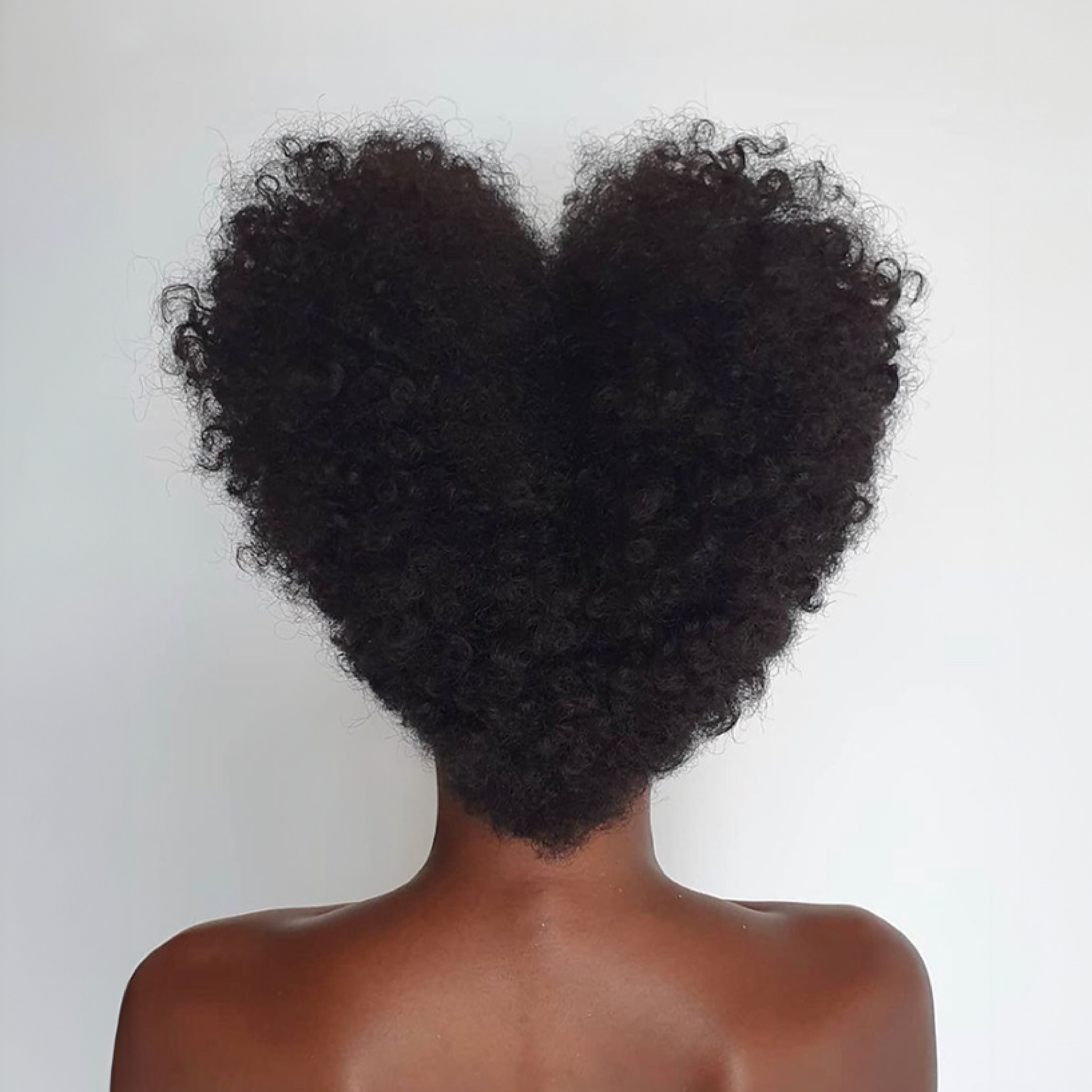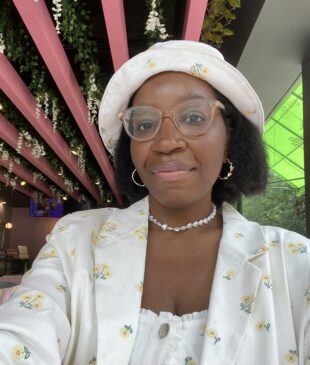New York State just took a huge step forward in addressing the lack of knowledge about textured hairstyling within cosmetology schools and salons.
Per reporting from Allure, New York State Governor Kathy Hochul signed new legislation on November 17 that will require all cosmetology schools in the region to make textured hair education a part of their general curriculum. The new law, known officially as Bill S6528A, was first introduced by New York State Senator Jamaal T. Bailey (D) in April 2023 with the goal of making cosmetology school education more inclusive of all hair textures. It is set to officially go into effect in approximately six months, giving cosmetology schools in New York State the opportunity to adjust their curriculums to make sure they’re in line with the new law.
Speaking on the importance of the bill’s passing, Sen. Bailey shared in a statement: “Hair is deeply personal. As a proud husband to my wife and father of two young girls, I want them to feel confident and beautiful when it comes to their uniquely textured hair—and in all the ways it is inextricably linked to our well-being, personal identity, and how we show up in the world. Individuals with hair of all textures deserve to feel welcomed, understood, and safe when they seek out hair care services.”
He added, “The current standards in the cosmetology industry often do not adequately prepare professionals to work with diverse hair textures. This knowledge gap disproportionately impacts women and girls of color with textured and diverse hair who face challenges in seeking out services that meet their needs. My bill, S6528A, seeks to change this by empowering cosmetologists to work with all hair textures and requiring that education and testing for cosmetologists or natural hairstylists includes the provision of services to individuals with all hair types and textures. This is an important step towards greater access and inclusion—we would not be here without the efforts of all the professionals and the industry leaders whose dedicated work and advocacy has helped elevate the standards of education and care for individuals with all hair textures.”
Working together with Assemblywoman Michaelle Solages (D), Sen. Bailey carried Bill S6528A into assembly, where it was voted on and later signed into law. Assemblywoman Solages spoke highly of the achievement sharing, “As a woman with textured hair, this achievement holds a special significance for me. It’s a victory for diversity, inclusion, and ensuring that everyone, regardless of their hair type, receives the attention and expertise they deserve in the salon. I am proud to have played a part in making the cosmetology field more representative and empowering for individuals with diverse hair textures. I thank Governor Hochul and Senator Bailey, PBA and TEC for working on this transformative step forward for the cosmetology industry.”
A Closer Look at Bill S6528A
Put simply, Bill S6528A’s main goal is to make cosmetology school education more inclusive in New York State. As the legislation states, “this bill would require cosmetologists and natural hairstylists to, pursuant to regulations promulgated by the secretary of state, complete certain training, as well as include questions on license examinations, regarding the provisions of services to individuals with all hair types—including, but not limited to, various curl and wave patterns, hair strand thicknesses, and volume of hair—as a condition of licensure.”
In order to meet these requirements, all New York State cosmetology school classes must include textured hair education and it will be the school responsibility to update their curriculums accordingly. Failure to do so will result in disciplinary action for the school, which could include civil penalties, such as a fine for non-compliance.
The Professional Beauty Association (PBA), in conjunction with its Texture Education Collective (TEC)—which was founded by Aveda, DevaCurl, L’Oreal USA, and Neill— has long been championing this new law and will be providing additional support to New York State cosmetology schools. As the state board exam will now include textured hair, its questions will not only need to be updated, but cosmetology classes will also need to ensure that they have diverse mannequins as well as hair models so that their students can receive proper hands-on training.
“[We’re] working toward offering supplemental materials, resources, and guidance to cosmetology programs and/or regulators, with added focus on texture hair, to support the transition,” PBA’s Government Affairs Director Myra Reddy told Allure. “The TEC is engaged in conversations with texting company PSI’s National Barber and Cosmetology Program Testing, which is a supporting member of the TEC. PSI provides an opportunity for volunteer engagement and feedback regarding testing and has allowed the TEC to learn more about the process for exam research, inclusive of licensed and trained subject matter experts.”
As for licensed stylists who are currently working in the industry, there is no requirement for them to return to cosmetology school under Bill S6528A. However, Assemblywoman Solages told Allure that they are encouraged to undergo additional courses: “[The law] emphasizes the ongoing need for education and training to ensure that professionals in the field are equipped with the knowledge and skills to work with all hair types, including textured hair.”
Textured Hair Regulations and Protections in New York State
While the passing of Bill S6528A is no doubt a monumental moment for texture hair inclusivity in New York, it’s important to understand that it’s far from the first of its kind in the state. A lot of the success of the bill is owed to the diligent work done by a variety of Black advocates and organizers who created solutions for inclusive textured hair training, education, and licensing, when they didn’t already exist. With that said, Sen. Bailey and Assemblywoman Michaelle Solages’ legislation builds upon their achievements and the prior initiatives that they helped implement in the state.
Natural Hairstyle and Braid Coalition Co-President Diane Da Costa shared a statement on December 5, responding to Allure’s article on New York State textured hair regulations and its need for a more comprehensive representation of New York’s legacy of normalizing textured hair.
“The Natural Hairstyle and Braid Coalition (NHBC) appreciates Allure’s attempt to spotlight the evolution of textured hair regulations and protections in New York State. However, its narrative requires additional context to fully understand New York’s legacy in normalizing natural hair,” she stated. “In 1993, New York became the first state to adopt a natural hairstyling license. The groundwork was laid by a group of visionary Black women stylists, barbers, entrepreneurs, and advocates in the nineties to create a license for natural hairstylists and braiders. Their efforts culminated in the 2017 legislation introduced by Assembly Member Gary Pretlow (Bill A898B) this law mandated two natural hairstylist to the Appearance Enhancement Advisory Committee and additionally form an advisory committee for the inclusion of texture education in cosmetology; to further advise the Secretary of State on educational policies for all hair types and textures.”
She also expressed concerns that she has for the new law and added, “Despite the NHBC’s persistent efforts to strengthen and refine this recent law, its full potential remains unrealized. The passing of Bill S6528A, which mandates texture education without professional oversight, is a concern. An additional concern is that guidance from the Texture Education Council (TEC), a corporate-led organization, may be anchored in corporate agendas for this $8.3+ billion industry without proper consultation or acknowledgement of the pioneering hairstylist who have actively contributed to and advocated for positive change. This lack of recognition raises apprehensions about whether the TEC’s decision will genuinely reflect the best interests of both stylists and consumers.”
As Da Costa has stated, Bill S6528A has the potential to spur massive change in New York, but in order for the legislation to be fully realized it’s going to need proper oversight and the support of credible experts with its implementation. Working together with organizations like the NHBC, who have a long history of fighting for textured hair inclusivity in the state, is needed to not only to hold corporations accountable who may be looking to tap into our industry, but also to ensure that cosmetologists students actually receive sufficient textured hair education, which we all know is so desperately needed at this point in time.
Bill S6528A Impact in New York State and Beyond
While a law of this nature has been so long overdue in our industry, it is necessary progress towards addressing longstanding issues of discrimination and bias related to textured hair in both salons and cosmetology schools. As many of us know (or maybe don’t know), the professional hair industry has had a prevailing racism problem and the root of it has been the exclusion of textured hair education from the general curriculum of cosmetology schools. The majority of cosmetology schools have, historically, centered their curriculums on the mastery of fine, straight hair rather than textured hair, resulting in a massive gap in education in our industry that leaves hairstylists unprepared to cut, color, and style curls or coils upon graduation. This lack of diverse education not only negatively impacts hairstylists, but also Black clients who have to go through extreme lengths to get serviced in a salon because stylists aren’t generally taught to work with all hair textures. In fact, it may be why some Black clients, particularly Black women, avoid salons altogether. A 2017 study from TextureMedia found that nearly one in four women with textured hair don’t go to a salon to have their hair done.
As it stands, there is a blatant double standard that exists in our industry with regards to styling textured hair. Black hairstylists make a point to know how to style every type of hair texture. Yet, the same can’t be said for white stylists. Texture vs. Race Founder Keya Neal touched on this while speaking to Allure, saying, “There is an inequitable expectation of excellence applied to all Black artists in any segment of the industry. I see this in how Black stylists migrate to white salons to expand their textural skills, while their white counterparts very rarely take the same opportunity to learn from Black salons.”
While Bill S6528A is specific to New York, the hope is that it will be the start of inclusivity at all salons—regardless of a person’s hair texture. As the bill is predominantly focused on the future, it stands to impact current and future cosmetology students in the state, who have not yet graduated. This means that going forward every single stylist in New York State will have no choice but to be knowledgeable in styling curls and coils. And let’s be clear: ensuring that all New York stylists can properly style all hair textures will majorly help usher in change through different segments of the professional hair industry—beginning first with salons and filtering over to editorial sets, film and TV sets, and even backstage at New York Fashion Week, which has long been a hotbed for hair discrimination.
Looking ahead, there is a desire for textured hair education to be a part of the general curriculum of cosmetology schools nationwide. In fact, the passing of Bill S6528A in New York State could inspire other states to adopt similar legislation. Already, we’ve seen Louisiana pass its own bill requiring textured hair training for all cosmetologists, back in 2021, and New Jersey is now set to do the same, too.
There’s a long road ahead in working towards making the United States more accepting and inclusive of textured hair, but legislation like Bill 6528A is definitely a step in the right direction. Only time will tell whether New York State’s new law is able to make as big of an impact on our industry as we all hope. While we all wait and see, in the meantime, stylists can sign a petition advocating for textured hair to be included in cosmetology testing standards here.


